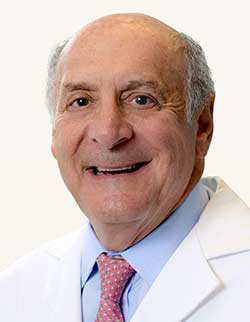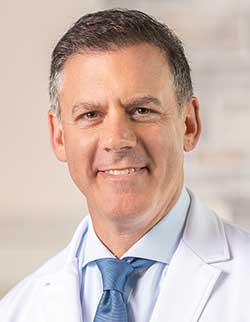
Hospital for Special Surgery West Side Ambulatory Surgery Center, LLC, is a state-of-the-art outpatient facility providing the highest quality same-day surgery options for our patients. The HSS West Side ASC follows highly specialized protocols that have been proven and tested among the most discerning athletes. Our world-class surgeons and exceptional staff are dedicated to providing you with the very best sports medicine care.
HSS West Side ASC is an independent, fully-licensed ambulatory surgery center and was formed as a joint venture between Hospital for Special Surgery and HSS surgeons.
Specialties
Information for Patients and Visitors
Our mission is to provide the highest quality patient care and to improve your mobility and quality of life. One of the ways in which we achieve these goals is by making you an active partner in your care. Please see the information below for how you, your friends and family, and your healthcare team can all play a vital role in providing you with the best care and the best outcomes.
What is ambulatory surgery?
Ambulatory surgery is also called outpatient surgery. It is designed as a service in which a patient arrives at the hospital or surgical center, has surgery, recovers, and usually goes home all in one day, without an overnight stay.
Anesthesiology
The anesthesiologists at the HSS West Side ASC will play a vital role in your upcoming surgery, administering anesthesia to ensure your comfort and safety during your surgical procedure and entire stay. Your anesthesiologist will discuss with you your medical history and the anesthetic plan for your operation and recovery. After your surgery, your anesthesiologist will care for you in the recovery room and, in addition, your surgeon may consult an anesthesiologist from our acute pain team to treat your post-surgical pain.
Here are some frequently asked questions regarding anesthesiology. If you still have questions, your anesthesiologist will be happy to answer them before your surgery begins.
What types of anesthesia are most commonly used? Will I be awake during my surgery?
Most of the surgical procedures are performed using regional anesthesia (spinal, epidural or nerve block are all types of regional anesthesia). Regional anesthesia numbs the nerves around the part of the body being operated on, producing partial or total temporary loss of sensation in that area. Most patients undergoing regional anesthesia also chose to receive intravenous sedation, which allows them to sleep during the operation. In some cases you may be able to stay awake during your procedure. Patients who undergo regional anesthesia generally have better pain control and are less likely to report feelings of nausea or vomiting following surgery.
While regional anesthesia is the most common anesthetic technique, general anesthesia is preferable in some cases. General anesthesia numbs the entire body and makes patients unaware of everything occurring in the operating room. Patients undergoing general anesthesia return to consciousness after the surgery is complete.
You and your anesthesiologist will discuss what type of anesthesia is best for you before your procedure, with the goal of keeping you safe and comfortable.
Will I be nauseous or vomit after anesthesia?
Our anesthesiologists regularly employ techniques (such as regional anesthesia) to reduce the risk of post-operative nausea and vomiting, and routinely give anti-nausea medications as part of your anesthetic care.
If you have a history of nausea and vomiting following surgery, please inform your anesthesiologist before surgery. He or she will make necessary adjustments to the anesthetic plan to ensure the best approach to prevent or minimize these side effects.
Will I experience pain after my surgery?
Orthopedic surgery is often associated with post-operative pain, and pain control is one of our top priorities. We have a variety of proven methods to keep you comfortable and safe. If you are scheduled for an outpatient procedure, your anesthesiologist will make sure that your pain is manageable before you are discharged.
Prior to Surgery
As your surgery date approaches, there are several important things to keep in mind and prepare for.
- Arrange for an escort. By law and for your safety, the HSS West Side ASC requires that patients arrange for a responsible adult over the age of 18 to escort them home. Your surgery may be cancelled if you do not have a confirmed escort present prior to the procedure.
- Getting help at home. If possible, arrange for someone to stay with you at home or to be available for at least 48 hours to assist you with activities of daily living.
- Plan for physical therapy. Even before your surgery, discuss with your surgeon your need for physical therapy and take the time to learn about outpatient rehabilitation facilities.
Day of Surgery
- What to Bring
On the day of surgery, please only bring documents and necessary items as directed by HSS West Side ASC staff.- Legal ID you used when scheduling surgery with your doctor
- Health insurance and prescription cards
- Medical information as requested by HSS West Side ASC staff and physicians, such as lab reports, advance directives and immunization status information
- List of medications, including how often you take them, indication and dosage
(Do not bring the medications with you on the day of surgery unless instructed by staff) - Dentures, eyeglasses and essential medical equipment such as braces, sleep apnea settings and masks (AND the machine)
The HSS West Side ASC is committed to providing a safe and secure environment during your stay. In order to keep your belongings safe, we kindly request that you do not bring any valuables or unnecessary personal belongings (e.g., suitcases, jewelry, cash, medical equipment, etc.) with you.
Please pack lightly as HSS West Side ASC staff cannot secure and store multiple bags, suitcases, luggage or backpacks for you or your visitors. Belongings that fit into a storage bag issued by the HSS West Side ASC will be secured and stored for you while you are in the operating room. Any additional personal belongings will be given to your designated visitors or family members for safekeeping. The HSS West Side ASC will not be responsible for any lost or misplaced personal belongings that were not secured by staff. - What to Wear
Please wear casual, loose-fitting clothing and athletic footwear. You will be provided with a gown and will be allowed to wear underwear during your procedure.- If you are having upper extremity surgery on your shoulder, elbow, or hand, a loose button-down shirt is recommended.
- If you are having lower extremity surgery on your knee, foot, or ankle, loose-fitting sweatpants or shorts are recommended.
- Where to Go
If arriving at the HSS West Side ASC by car, please use the patient pickup/drop off at the main entrance which is access from the through block from 57th Street. Upon entering the building, reception can direct you to the admitting assistants who will complete your admission process and place an I.D. bracelet around your wrist. After completing check-in, you will be directed to the appropriate location for your surgery.
Patients and their visitors will remain in the waiting area until called to the pre-surgical holding unit. Once the patient is called for surgery, visitors will be directed to the waiting area. After surgery, your physician will speak to your visitors about your condition. They will be notified when you are taken to the recovery room and when they can see you. Please remind your visitors to remain in the waiting area or to leave word at the desk if they must leave. - Recovery Area Visitation Information
To ensure the safety, comfort and privacy of all the patients in the Recovery Area, we ask that everyone follow these guidelines:- Patient/Nurse Liaisons must accompany visitors to the Recovery Area during all visits.
- One visitor is permitted at the patient's bedside for each scheduled time. For pediatric patients, both parents/guardians are permitted.
- Food, drinks, flowers and gifts are NOT permitted in the Recovery Area.
- Cell phones must be OFF while in the Recovery Area to prevent any interference with medical equipment.
- Children under 14 are not permitted in the Recovery Area.
After Surgery
In the recovery room, the nursing staff will provide the necessary care for you and monitor your return to full awareness. In order to be discharged from the recovery room to home, you must meet our established discharge criteria:
- Stand up and walk without feeling dizzy or lightheaded
- Tolerate food and liquids
- Have the ability to urinate
- Have your post-operative pain controlled
- Achieve physical therapy goals
Regardless of the type of anesthesia you receive, you will stay at the HSS West Side ASC until your condition is stable and it is safe for you to leave.
Discharge
When you are ready to leave, the person escorting you home will be asked to bring the car to the through block between 57th and 58th Street. We ask that the driver please be patient if there is a prolonged wait. HSS West Side ASC surgical personnel will escort you to the car and assist in your departure.
You will not be allowed to drive yourself home. Keep the number of people who accompany you to one or two. We follow national standards that do not permit children under the age of 14 to accompany you on the day of hospital discharge.
If your driver does not plan to wait at the HSS West Side ASC during your surgery, please give your nurse a phone number where he or she can be reached. Individuals picking up patients upon discharge should bring pillows for patients to use during transport.
Patient Rights
As a patient in an ambulatory surgery center in New York State, you have the right, consistent with law, to:
- Receive services without regard to age, race, color, sexual orientation, religion, marital status, sex, disability, sexual orientation, gender identity or expression, national origin or sponsor.
- Be treated with consideration, respect and dignity including privacy in treatment.
- Be informed of the services available at the center.
- Be informed of the provisions of off-hour emergency coverage.
- Be informed of the charges for services, eligibility for third-party reimbursements and, when applicable, the availability of free or reduced care costs.
- Receive an itemized copy of his or her account statement, upon request.
- Obtain from his or her health care practitioner, or the health care practitioner’s delegate, complete and current information concerning his or her diagnosis, treatment and prognosis in terms the patient can be reasonably expected to understand.
- Receive from his or her physician information necessary to give informed consent prior to the start of any nonemergency procedure or treatment or both. An informed consent shall include, as a minimum, the provision of information concerning the specific procedure or treatment or both, the reasonably foreseeable risks involved, and alternatives for care or treatment, if any, as a reasonable medical practitioner under similar circumstances would disclose in a manner permitting the patient to make a knowledgeable decision.
- Refuse treatment to the extent permitted by law and to be fully informed of the medical consequences of his or her action.
- Refuse to participate in experimental research.
- Voice grievances and recommend changes in policies and services to the center’s staff, the operator and the New York State Department of Health without fear of reprisal.
- Express complaints about the care and services provided and to have the center investigate such complaints. The center is responsible for providing the patient or his/her designee with a written response within 30 days if requested by the patient indicating the findings of the investigation. The center is also responsible for notifying the patient or his or her designee that if the patient is not satisfied by the center response, the patient may complain to the New York State Department of Health’s Office of Health Systems Management.
- Privacy and confidentiality of all information and records pertaining to the patient’s treatment.
- Approve or refuse the release or disclosure of the contents of his or her medical record to any healthcare practitioner and/or healthcare facility except as required by law or third-party payment contract.
- Access his or her medical record pursuant to the provision of section 18 of the Public Health Law, and Subpart 50-3 of Title 10 of the Compilation of Codes, Rules and Regulations of the State of New York.
- Authorize those family members and other adults who will be given priority to visit consistent with your ability to receive visitors.
- Make known your wishes in regard to anatomical gifts. You may document your wishes in your health care proxy or on a donor card available from the center.
Notice of Nondiscrimination and Accessibility
The HSS West Side ASC is committed to providing high quality care and skilled and compassionate service to our community. Consistent with this commitment, the HSS West Side ASC complies with applicable federal, state, and local civil rights laws and does not discriminate on the basis of actual or perceived race, color, creed, ethnicity, religion, national origin, alienage or citizenship status, culture, language, age, disability, socioeconomic status, sex, sexual orientation, gender identity or expression, partnership or marital status, veteran or military status, or any other prohibited basis.
The HSS West Side ASC:
- Provides free aids and services to people with disabilities to communicate effectively with us, such as:
- Qualified sign language interpreters; and
- Written information in other formats, such as large print, audio, and accessible electronic formats.
- Provides free language services to people whose primary language is not English, such as:
- Qualified interpreters; and
- Information written in other languages.
If you need these services, contact Bella Elogoodin, Senior Director, languageservices@hss.edu, Tel.: 1.212.606.1760.
If you believe that the HSS West Side ASC has failed to provide these services or discriminated in another way, you can file a grievance with:
Augastin Kozhimala, Senior Director
HSS West Side ASC
610 West 58th Street, New York, NY 10019
Tel: 1.212.774.7026
Email: kozhimalaa@hss.edu
You can file a grievance in person or by mail, or email. If you need help filing a grievance, you may contact the office of Augastin Kozhimala for assistance.
You also have the right to file a civil rights complaint with the U.S. Department of Health and Human Services, Office for Civil Rights, electronically at https://ocrportal.hhs.gov/ocr/portal/lobby.jsf, or by mail or phone at: U.S. Department of Health and Human Services, 200 Independence Avenue SW, Room 509F, HHH Building, Washington, DC 20201, 1.800.368.1019, 800.537.7697 (TDD). Complaint forms are available at http://www.hhs.gov/ocr/office/file/index.html.
ATENCIÓN: Si usted habla español, le avisamos que tenemos servicios lingüísticos gratuitos a su disposición. Llame al: 1-212-606-1760, TTY: 1-800-676-3777.
注意:如果您講中文,可向您提供免費語言服務。致電 1-212-606-1760,TTY: 1-800-676-3777。
Внимание: Если Вы говорите по русски, примите к сведению, что Вы можете воспользоваться бесплатными услугами переводчика. Звоните по номеру: 1-212-606-1760, TTY: 1-800-676-3777.
ATANSYON: Si ou pale Kreyòl Ayisyen, gen sèvis asistans nan lang ki disponib pou ou gratis. Rele nan 1-212-606-1760, TTY: 1-800-676-3777.
알려드립니다: 귀하께서 한국어를 하시는 경우, 무료로 언어 도움 서비스를 이용하실 수 있습니다. 1-212-606-1760 (TTY: 1-800-676-3777) 번으로 전화하십시오.
ATTENZIONE: se parli italiano sono disponibili servizi di assistenza linguistica gratuiti. Chiama il numero 1-212-606-1760, TTY: 1-800-676-3777.
אכטונג׃ אױב איר רעדט אידיש, זענען פאר אײך דא צו באקומען שפראך הילף סערװיסעס פרײ פון אפצאל. רופט 1-212-606-1760, TTY: 1-800-676-3777.
দৃষ্টি আকর্ষণ: যদি আপনি বাংলায় কথা বলেন, তাহলে আপনি বিনামূল্যে ভাষাগত সহায়তা পরিষেবা পেতে পারেন৷ ফোন করুন: 1-212-606-1760, TTY: 1-800-676-3777
UWAGA: Jeżeli mówi Pan/Pani po polsku, dostępne są dla Państwa bezpłatne usługi pomocy językowej. Proszę zadzwonić pod numer 1-212-606-1760, TTY: 1-800-676-3777.
ملاحظة: إذا كنت تتحدث اللغة العربية، فإننا نوفر لك خدمات مساعدة لغوية بالمجان. اتصل على
1-212-606-1760، هاتف نصي (TTY): 1-800-676-3777.
VEUILLEZ NOTER: Si vous parlez français, des services d’assistance linguistique gratuits, sont à votre disposition. Appelez le 1-212-606-1760, TTY: 1-800-676-3777.
توجہ فرمائیں: اگر آپ کی زبان اردو ہے تو آپ کے لیے زبان میں معاونت فراہم کرنے والی سروسز (لینگوئج اسسٹنس سروسز) بلامعاوضہ دستیاب ہیں کال کریں 1-212-606-1760 TTY: 1-800-676-3777۔
PAUNAWA: Kung nagsasalita ka ng Tagalog, may makukuha kang mga libreng serbisyo ng tulong sa wika. Tumawag sa 1-212-606-1760, TTY: 1-800-676-3777.
ΠΡΟΣΟΧΗ: Εάν μιλάτε ελληνικά, διατίθενται δωρεάν υπηρεσίες γλωσσικής βοήθειας για εσάς. Καλέστε το 1-212-606-1760. TTY: 1-800-676-3777.
VINI RE: Nëse flisni shqip, keni në dispozicion shërbime ndihme për gjuhën pa pagesë. Telefononi 1-212-606-1760, TTY: 1-800-676-3777.
Notice of Privacy Practices
Download in English | Español (Spanish) | 中文 (Chinese)| Русский (Russian)
Patient Safety
Be an active partner in your care
Together with The Joint Commission, we urge patients to become involved in their care through a program called “Speak Up.” “Speak Up” offers simple advice on how you can make your care a positive experience. Research shows that patients who take part in decisions about their healthcare are more likely to have better outcomes.
“Speak Up” means:
- Ask questions if you have concerns or do not understand something about your care.
- Let us know if English is not your primary language – we will gladly get you an interpreter.
- Say something if you think you are about to receive the wrong medication or if you think the healthcare professional has confused you with another patient.
- Ask members of your healthcare team if they have washed their hands prior to delivering care.
- Share your medical history with your healthcare team.
- Tell us if you have any allergies.
- Ask a trusted family member or friend to be your advocate.
Seeking education about your medical issues and your treatment allows you to be a better partner in your care. Good communication with your healthcare team benefits everyone. Letting us know your issues and concerns
helps us in your care and also keeps you involved as an active partner. Feel free to ask your nurse and other members of the healthcare team to address your concerns.
Know what medications you take and why and when you take them
- Have your list of all the medications you are currently taking, as advised, prior to admission. This includes prescriptions and over- the- counter items like vitamins, herbal supplements, pain relievers, antacids and allergy medications.
- Also have your contact information for your primary care doctor, or the doctor who will be following your care once you leave the HSS West Side ASC, including their name, telephone number and fax number.
- Always ask about any medication that is given to you and know why you are taking it.
- Carefully review the medications you are to take once you leave the HSS West Side ASC, and be sure you have the prescriptions and that you understand the discharge and follow-up instructions.
- Please throw away any old medication lists and update your records with any retail pharmacies or providers.
- Should you be discharged on medications such as Coumadin or Lovenox, which are anticoagulants (medications to prevent blood clots), our nurses will provide careful teaching to you and your family or caregivers as to dose, time, diet and follow-up instructions that are all very important for your safety.
Check and double check identification
- Patient identification: You are given an HSS West Side ASC identification (ID) band when you arrive at the HSS West Side ASC. This ID band has your name, date of birth (DOB) and medical record number which helps us to identify you and ensures that we are giving you the proper care and treatment. You will find that your healthcare team will check your ID band and ask for your name and DOB throughout your stay. Please know that this is for your safety. If your ID band falls off or is not easy to read, please ask us for another one.
- Surgical site identification: You will be asked to identify the correct surgical site by pointing to the area where you are due to have surgery, at which time your surgeon will initial the correct surgical site using a special marker. Another safety measure that happens right before your procedure is a “Time Out,” in which the healthcare team will confirm patient identity, surgical site, correct procedure and surgery consent form.
Preventing infections
Hand washing is one of the best ways to prevent the spread of infection. HSS West Side ASC staff members are aware of this and will clean their hands with either soap and water or a sanitizing solution (Purell) before and after they provide care for you. If you have not seen someone on your healthcare team wash their hands, we suggest that you ask them to do so.
Avoid falls
- Always press the call bell for help before getting out of bed or while in the bathroom. Your room has many things like foot stools and tray tables that may need to be moved for you to walk safely.
- Always check to see what tubing is connected to you before getting out of bed—for example, IV, pain pump, catheter, or airflow foot pumps.
- Use your cane, crutches or walker as directed by your physical therapist.
- Follow your hip or back precautions if you have them.
- Use the handrails in the bathroom as needed.
- Wear your eyeglasses or contact lenses to clearly see your surroundings and to help you with balance.
- Wear non-slip footwear.
- Do not self-medicate while you are in the HSS West Side ASC – your doctor or nurse will give you your medications at the HSS West Side ASC.
- Be aware, if you have been given a nerve block, that it can take a long time to wear off and may have an effect on your ability to stand or walk safely.
- Be sure to tell us if you feel dizzy or drowsy for any reason.
Remembering these things and making sure to press the call bell when you want to move about will help you to stay safe and have a good recovery.
Your Partners in Care and Safety
Now that you have reviewed this information, you have learned many ways to keep yourself safe throughout your time at the HSS West Side ASC. Of course, you are not alone in this effort. Your healthcare team and the entire staff at the HSS West Side ASC are committed to excellence in all that we do. As such, it is our goal to ensure the highest level of safety for our patients. Remember, “Speak Up”, ask questions, share concerns and be mindful of your surroundings. We welcome you as partners in your care and we look forward to getting you up and moving, safely, to a better quality of life.
HSS West Side ASC is a participating provider in a growing number of health plan networks. View the list of the insurance plans in which we participate. It is important to check whether we participate in the specific plan by which you are covered.
Certain licensed facilities are required by law to make available information about the fees you may be billed that may not be covered by your healthcare plan. To obtain an estimate and more specific information regarding charges and insurance coverage, you may contact the HSS Insurance Advisory Service. They can serve as a liaison service between you, your insurance carrier, and the HSS West Side ASC to provide information regarding your potential out of pocket responsibilities for copayments, deductibles and co-insurance amounts. The HSS Insurance Advisory Service can be reached at 212.774.2607 or through our online form.
The physician services you receive in the HSS West Side ASC are not included in the HSS West Side ASC's charges. In addition to the bill for the HSS West Side ASC facility fee, you will receive separate bills for the following providers:
- Your Surgeon
- Anesthesia Provider – East River Medical Associates – 212.606.1206
- Pathology, if tissues or specimens were removed during surgery you will receive a technical bill from Hospital for Special Surgery and a professional bill from HSS Pathology – 212.774.2607
These providers make their own decisions regarding participation in insurance plans and may or may not participate in the same health plans as the HSS West Side ASC. Contact and plan participation information can be found in the profiles of the providers below.
If you are concerned that you may not be able to pay in full for your care at HSS West Side ASC, you may be eligible for financial assistance. We provide financial aid to patients based on income, assets, and needs. View information about financial assistance or contact our Financial Assistance Office at 212.606.1505.
Our Surgeons


















